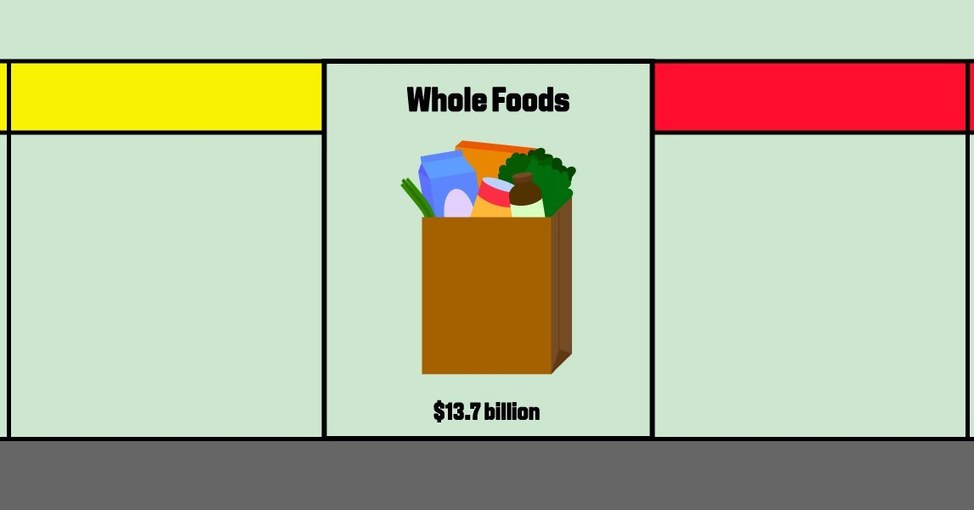IN A RECENT episode of HBO’s Silicon Valley, Richard, the show’s protagonist startup founder, and Monica, one of his investors, stroll through the aisles of a bountiful grocery store that looks not unlike Whole Foods. “You do realize I am literally the only person in this grocery store actually buying stuff for myself?” Monica says to Richard. The camera cuts to zombified contract workers wearing branded T-shirts for delivery startups like Instacart, Postmates, and TaskRabbit. Grown men and women grab items off the shelves, hunch forward to consult their smartphone apps, and repeat. The satirical message: This is the future Silicon Valley wants.
Society is inching ever closer to Mike Judge’s fictionalized universe, although, in the real-world version, all those delivery startups might get displaced by Amazon. That’s the image that came to mind Friday, when the online shopping behemoth announced plans to acquire Whole Foods for $13.7 billion. The announcement sent a shiver through the startup landscape, but there’s even more at stake in the retail sector, which is already in bad decline. Wall Street investors, spooked by the shadow of CEO Jeff Bezos, sent the stock prices for traditional retail chains—Walmart, Kroger, Target—tumbling down.
Venture capitalist Chamath Palihapitiya predicted this kind of land grab, or something like it, a couple of years ago, at an investment conference, when he called Amazon the most incredible company in the world: “We believe there is a multitrillion-dollar monopoly hiding in plain sight,” he said. For amateur observers, Amazon acquiring Whole Foods was the first glimpse of how that monopoly might take shape. Whole Foods is a high-end household name brand with 460 locations. What if Bezos could use the tactics and economies of scale that helped Amazon dominate online markets to become just as indispensable in the bricks-and-mortar business? In groceries, no less, a staple everyone needs?
Big moves by Amazon tend to incite paranoia, in large part because, after two decades, Bezos has made good on his promise to build the best “everything store” on planet Earth. Whole Foods’ consumer citadels in upscale neighborhoods will undoubtedly enhance Amazon’s dominance in logistics. The move certainly seemed tectonic to delivery startups like Instacart, whose value depends on being better than Amazon at delivering perishable goods the “last mile,” or to a consumer’s door: in a statement to reporters, the company said, “Amazon just declared war on every supermarket and corner store in America.” And because Amazon now competes in such a dizzying array of categories, predictions about what the acquisition could bring ran amok. Will Amazon offer Prime membership at Whole Foods, making participation in the program even more irresistible (or mandatory, even)? Will the company test out dynamic pricing of food, like it has with Amazon Books? Will the effect on competition officially make Amazon a monopoly?
Sourced through Scoop.it from: www.wired.com




Leave A Comment